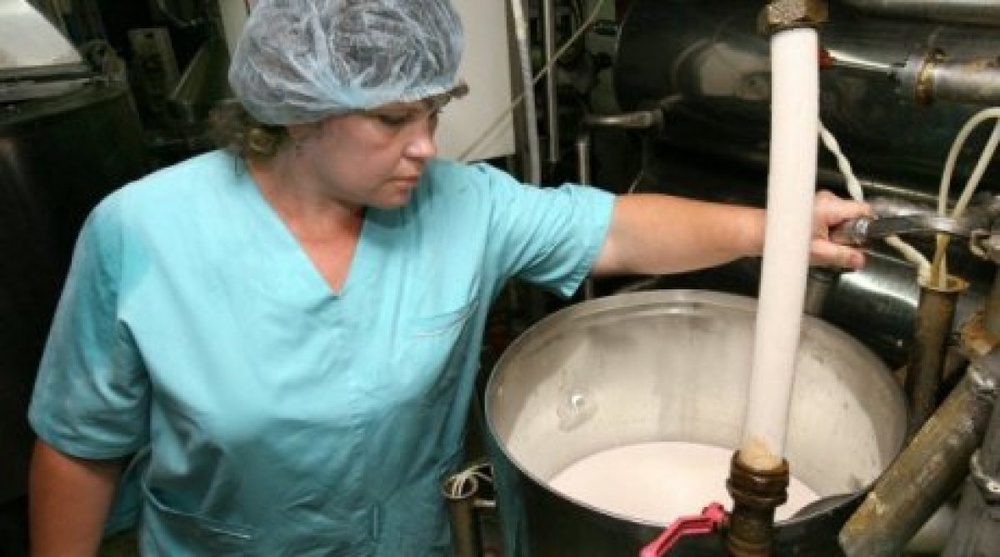
Sodium benzoate is allowed in milk as a substance not effecting human health at low concentration, Tengrinews.kz reports citing Kazakhstan Food Academy. Earlier Sharkan Mazhidenov, ex-Director of Almaty department of the Technical Regulation and Metrology Commission of Kazakhstan Ministry of Industry and New Technologies stated that back in September 2012 when he headed the department, milk samples were bought in Almaty’s stores. The samples were checked in the laboratory of Kazakhstan Food Academy. The research showed that milk produced by two Kazakhstan and two Russian factories contained sodium benzoate (benzoic acid). The expert explained that according to the technical rules such preservative was not allowed in milk. Mazhidenov stated that the preservative is an allergenic agent and is able to behave as a carcinogen damaging DNA structure when consumed in large quantities. The Food Academy certifies that according to sanitary-epidemiological and hygienic requirements to food subject to control by sanitary-epidemiological services, use of preservatives is not allowed in milk. "However, according to the researches of Russian Scientific-Research Institute of Milk Industry of Russian Agricultural Academy and еру World Health Organization, milk may contain benzoates both in free form and in the form of glycosides in the amount of up to 20 mg per liter, which is considered a natural background. That's why the discovered concentration of sodium benzoate may be considered equaled to the natural content in milk that has no hazardous effect on human health," the Food Academy states. A written explanation on this subject was sent by the Food Academy to Kazakhstan milk producers and to the Technical Regulation Commission of Kazakhstan Ministry of Industry and New Technologies. Besides, according to the Academy, milk samples were checked in October 2012 in NUTRITEST laboratory accredited for detection of preservatives in milk and dairy products. The test also showed presence of benzoates in milk of some Russian and Kazakhstan producers. "But as it was said earlier, they are part of the milk's natural content and do not have a hazardous effect on the human health," the Academy stated. By Dmitriy Khegai





Sodium benzoate is allowed in milk as a substance not effecting human health at low concentration, Tengrinews.kz reports citing Kazakhstan Food Academy.
Earlier Sharkan Mazhidenov, ex-Director of Almaty department of the Technical Regulation and Metrology Commission of Kazakhstan Ministry of Industry and New Technologies stated that back in September 2012 when he headed the department, milk samples were bought in Almaty’s stores. The samples were checked in the laboratory of Kazakhstan Food Academy. The research showed that milk produced by two Kazakhstan and two Russian factories contained sodium benzoate (benzoic acid). The expert explained that according to the technical rules such preservative was not allowed in milk. Mazhidenov stated that the preservative is an allergenic agent and is able to behave as a carcinogen damaging DNA structure when consumed in large quantities.
The Food Academy certifies that according to sanitary-epidemiological and hygienic requirements to food subject to control by sanitary-epidemiological services, use of preservatives is not allowed in milk.
"However, according to the researches of Russian Scientific-Research Institute of Milk Industry of Russian Agricultural Academy and еру World Health Organization, milk may contain benzoates both in free form and in the form of glycosides in the amount of up to 20 mg per liter, which is considered a natural background. That's why the discovered concentration of sodium benzoate may be considered equaled to the natural content in milk that has no hazardous effect on human health," the Food Academy states. A written explanation on this subject was sent by the Food Academy to Kazakhstan milk producers and to the Technical Regulation Commission of Kazakhstan Ministry of Industry and New Technologies.
Besides, according to the Academy, milk samples were checked in October 2012 in NUTRITEST laboratory accredited for detection of preservatives in milk and dairy products. The test also showed presence of benzoates in milk of some Russian and Kazakhstan producers. "But as it was said earlier, they are part of the milk's natural content and do not have a hazardous effect on the human health," the Academy stated.
By Dmitriy Khegai

 +7 (777) 001 44 99
+7 (777) 001 44 99















































